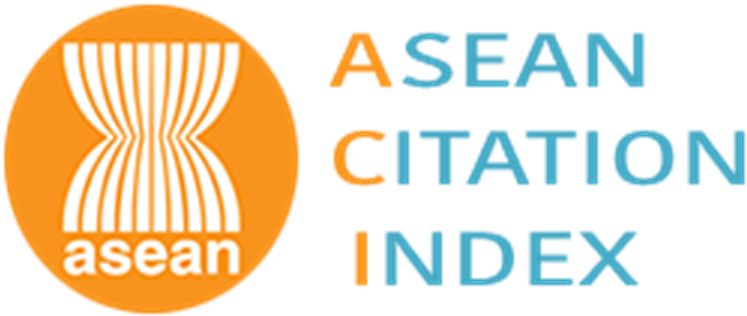การเสริมกำลังคานคอนกรีตกำลังอัดต่ำที่ร้าวรับแรงบิดโดยวิธีการโอบรัดด้วยแผ่นเหล็กเหนียวอัดแรงภายหลัง
Torsional Strengthening of Damaged Low-strength RC Beams Using Prestressed Ductile Metal Straps
Abstract
งานวิจัยนี้ศึกษาประสิทธิภาพของระบบเสริมกำลังโดยวิธีการโอบรัดด้วยเหล็กแผ่นบางโอบรัดภายหลัง โดยวัตถุประสงค์เพื่อทำการศึกษาประสิทธิภาพของการเสริมกำลังคานคอนกรีตกำลังอัดต่ำภายใต้แรงบิด โดยทดสอบในระยะที่ 1 ทำการทดสอบเพียงแค่รอยร้าวแรกเท่านั้น เพื่อจะศึกษาว่าแผ่นเหล็กเหนียวสามารถเพิ่มกำลังในการรับแรงบิดได้อย่างมีนัยสำคัญ และในระยะที่ 2 ทำการเสริมกำลังคานคอนกรีตกำลังอัดต่ำภายหลังจากที่เกิดรอยร้าวแล้วจากในระยะที่ 1 เพื่อจำลองสถานการณ์ที่อาคารได้รับความเสียหาย ภายใต้แรงบิดในห้องทดลอง ผลจากการศึกษาพบว่า วิธีการเสริมกำลังคานคอนกรีตด้วยวิธีแผ่นเหล็กเหนียวอัดแรงภายหลัง มีผลต่อการเพิ่มความสามารถในการรับแรงบิด สูงสุดร้อยละ 33 เมื่อเปรียบเทียบกับการซ่อมแซมคานคอนกรีตกำลังอัดต่ำโดยปูนซีเมนต์แบบไม่หดตัวชนิดพิเศษที่มีกำลังอัดสูง (Non-Shrink grout) ซึ่งมีผลต่อการเพิ่มขึ้นของกำลังรับแรงบิดประลัยเพียงเล็กน้อย
This research deals with the efficiency of torsional strengthening system on damaged low-strength reinforced concrete (RC) beams using post-tensioned metal strapping (PTMS) technique on 2-phase experiment. In phase 1, the test focused only on the first crack to determine the significant increase of torsional strength. In phase 2, all pre-cracked beam specimens from phase 1 were repaired with non-shrink cement and confined with high-ductile metal straps. To simulate the damage building, all strengthening beams were subsequently re-tested under pure torsion in the laboratory. Based on the test results, it is found that the use of the PTMS technique significantly enhances the torsional capacity. It is also found that the use of non-shrink cement as a crack repairing material for damaged concrete beams increased only the ultimate torsion capacity of the strengthening beams by up to 33%.
Keywords
[1] J. G. Teng, J. F. Chen, S. T. Smith, and L. Lam, FRP: Strengthened RC Structures. Wiley-VCH, 2002, p. 266.
[2] T. Imjai and R. Garcia, “Performance of damaged RC beams repaired and/or strengthened with FRP sheets: An experimental investigation,” in Mechanics of Structures and Materials XXIV, CRC Press, 2016.
[3] T. Imjai, R. Garcia, M. Guadagnini, and K. Pilakoutas, “Strength degradation in curved fiber-reinforced polymer (FRP) bars used as concrete reinforcements,” Polymers, vol. 12, 2020, Art. no. 1653.
[4] S. B. Kandekar and R. S. alikoti, “Study of torsional behavior of reinforced concrete beams strengthened with aramid fiber strips,” International Journal of Advanced Structural Engineering, vol. 9, no. 21, pp. 465–474, 2018.
[5] G. Williams, R. Al-Mahaidi, and R. Kalfat, “The West Gate Bridge strengthening of a 20th century bridge for 21st century loading,” in Proceeding 10th International Symposium on FRP Reinforcement for Concrete Structures (FRPRCS), vol. 10, pp. 1–18, 2011.
[6] A. Wiberg, “Strengthening of concrete beams using cementitious carbon fibre composites,” PhD. thesis, Royal Institute of Technology, Stockholm, Sweden, 2003.
[7] A. Ghobarah, M. N. Ghorbel, and S. E. Chidiac, “Upgrading torsional resistance of reinforced concrete beams using fiber-reinforced polymer,” Journal of Composites for Construction, vol. 6, no. 4, pp. 257–263, 2002.
[8] A. Ghobarah, M.N. Ghorbel, and S.E. Chidiac, “Upgrading torsional resistance of reinforced concrete beams using fiber-reinforced polymer,” Journal of Composites for Construction, vol. 6, no. 4, pp. 257–263, 2002.
[9] M. Y. Alabdulhady and L. H. Sneed, “Torsional strengthening of reinforced concrete beams with externally bonded composites: A state of the art review,” Construction and Building Materials, vol. 205, pp. 148–163, 2019.
[10] G. Al-Bayati, R. Al-Mahaidi, M.J. Hashemi, and R. Kalfat, “Torsional strengthening of RC beams using NSM CFRP rope and innovative adhesives,” Composite Structures, vol. 187, pp. 190–202, 2018.
[11] Y. Meyyada, A. Hady, and L.H. Sneed, “Torsional strengthening of reinforced concrete beams with externally bonded composites A state of the art review,” Construction and Building Materials, vol. 205, pp. 148–163, 2019.
[12] I. Gamal, G.I. Khalil, A.S. Debaiky, M.H. Makhlouf, and A. EL-Sayed Ewis, “Torsional behavior of reinforced concrete beams repaired or strengthened with transversal external post – tension elements,” IJSTE International Journal of Science Technology and Engineering, vol. 4, no. 4, pp. 54–73, 2017.
[13] A. El-HakimKhalil, E. Etman, A. Atta, and S. Fayed, “Torsional strengthening of RC box beams using external prestressing technique,” IOSR Journal of Mechanical and Civil Engineering, vol. 2, no. 2, pp. 30–41, 2015.
[14] Guide for the Design and Construction of Externally Bonded FRP Systems for Strengthening Concrete Structures, ACI 440.2R-08, 2008.
[15] M. Frangou, K. Pilakoutas, and S. Dritsos, “Structural repair/strengthening of RC columns,” Construction and building materials, vol. 9, no. 5, pp. 259– 266, 1995.
[16] M. Frangou, “Strengthening of concrete by lateral confinement,” Ph.D. thesis, Department of Civil and Structural Engineering, The University of Sheffield, UK, 1996.
[17] C. K. Ma, R. Garcia, S. C. S. Yung, A. Z. Awang, W. Omar, and K. Pilakoutas, “Strengthening of pre-damaged concrete cylinders using post-tensioned steel straps,” in Proceedings of the Institution of Civil Engineers: Structures and Buildings, vol. 172, no. 10, pp. 703–711, 2019.
[18] C. K. Ma, A. Z. Awang, W. Omar, M. Liang, S. W. Jaw, and M. Azimi, “Flexural capacity enhancement of rectangular high-strength concrete columns confined with post-tensioned steel straps,” Structural Concrete, vol. 4, pp. 668– 676, 2016.
[19] H. Moghaddam, M. Samadi, K. Pilakoutas, and S. Mohebbi, “Axial compressive behaviour of concrete actively confined by metal strips part A experimental study,” Materials and Structures, vol. 43, no. 10, pp. 1369–1381, 2010.
[20] T. Imjai, M. Setkit, R. Garcia, P. Sukontasukkul, and S. Limkatanyu, “Seismic strengthening of low strength concrete columns using high ductile metal strap confinement a case study of kindergarten school in northern Thailand,” Walailak Journal of Science Technology, vol. 7, no. 12, 2020.
[21] T. Imjai, C. Chaisakulkiet, R. Garcia, and K. Pilakoutas, “Strengthening of RC members using Post-tensioned Metal Straps state of the research,” Lowland Technology International Journal, vol. 20, no. 2, pp. 187–196, 2018.
[22] M. Chau-Khun, A. Z. Awang, W. Omar, K. Pilakoutas, M. M. Tahir, and R. Garcia, “Elastic design of slender high-strength RC circular columns confined with external tensioned steel straps,” Advances in Structural Engineering, vol. 18, no. 9, pp. 1487–1499, 2015.
[23] H. P. Lee, A. Z. Awang, and W. Omar, “Steel strap confined high strength concrete under uniaxial cyclic compression,” Construction and Building Materials, vol. 72, pp. 48–55, 2014.
[24] Standard test method for compressive strength of cylindrical concrete specimens, ASTM C39/ C39M-20, 2020.
[25] Building Code Requirements for Structural Concrete and Commentary, ACI 318-14, 2014.
[26] M. Setkit, T. Imjai, U. Chaisakulkiet, R. Garcia, K. Dangyem, K. Sanupong, and W. Chamnankit, “Torsional strengthening of low-strength rc beams with post-tensioned metal straps an experimental investigation,” Walailak Journal of Science and Technology, vol. 17, no. 12, pp. 1399–1411, 2020.
DOI: 10.14416/j.kmutnb.2022.07.008
ISSN: 2985-2145





